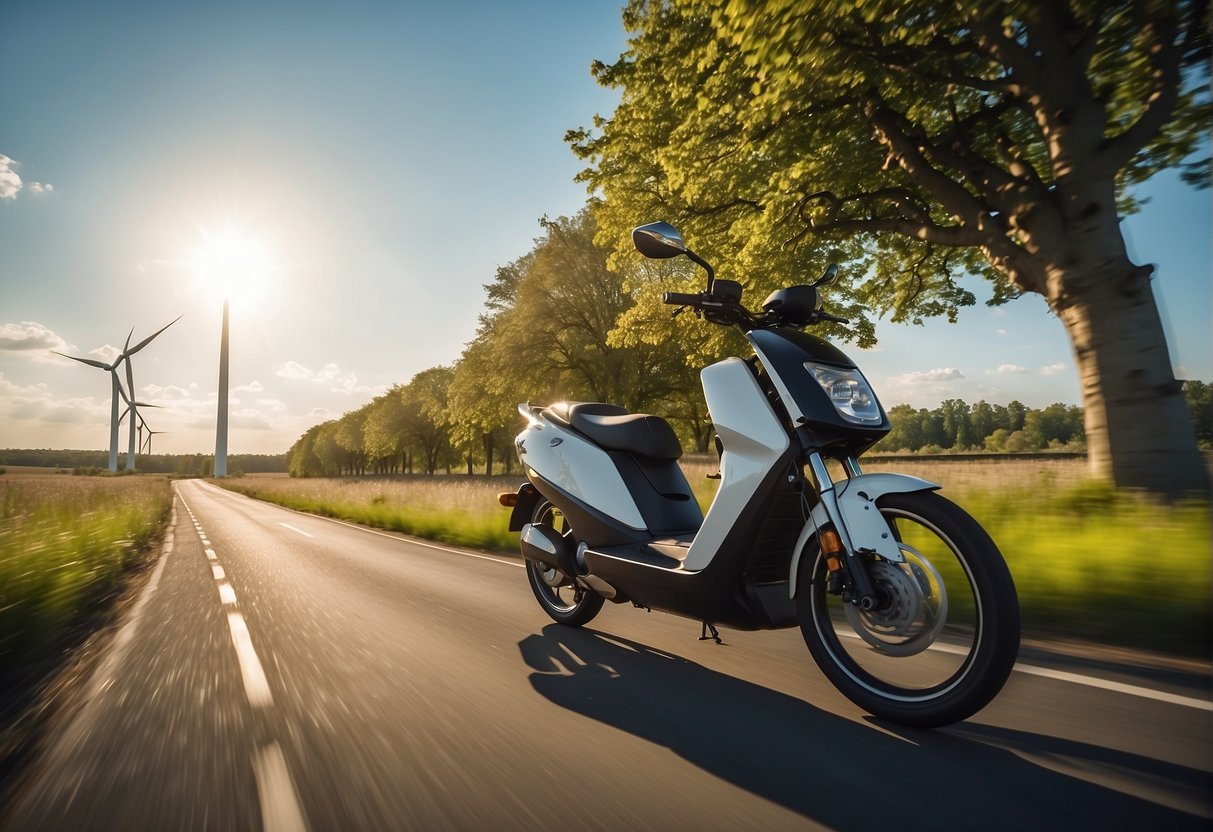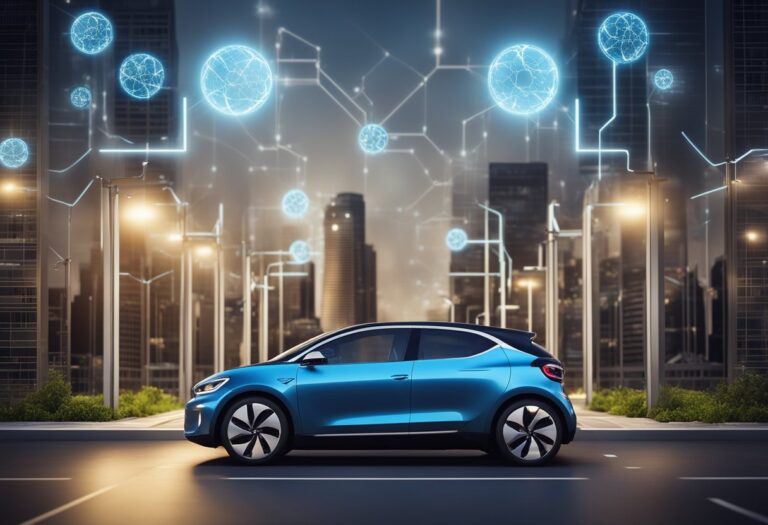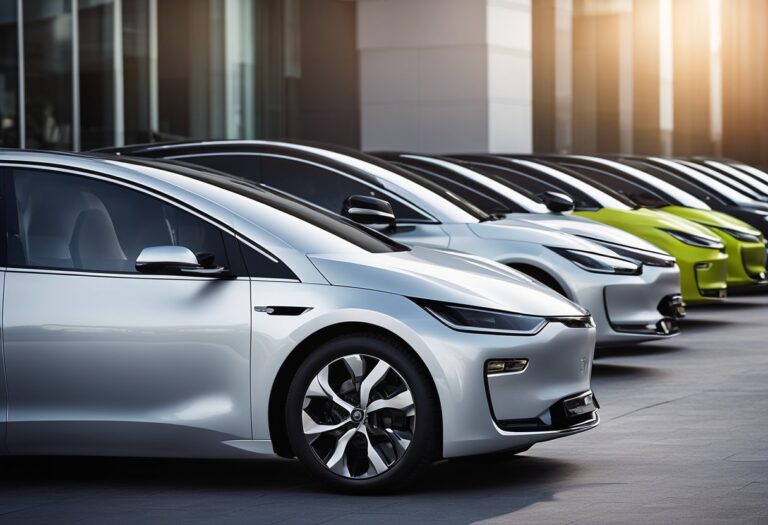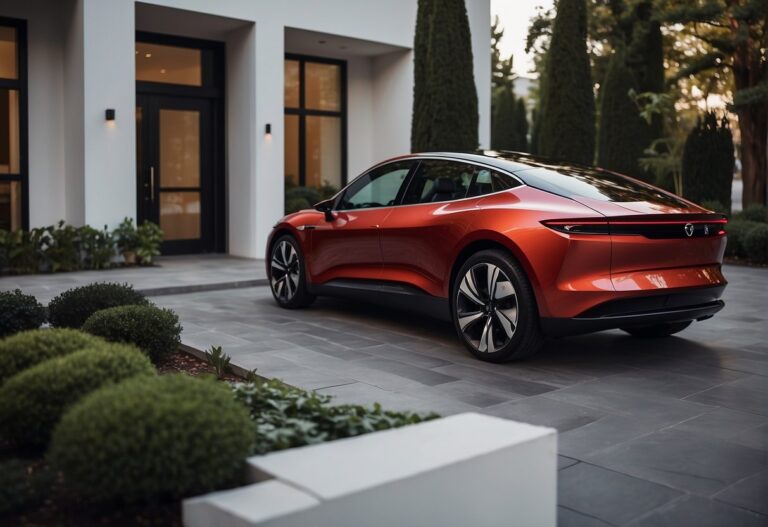Sustainable commuting has become a hot topic in recent years, as people are becoming more aware of the impact their daily transportation choices have on the environment. Electric bikes and electric cars are two popular options for sustainable commuting, each with its own benefits and drawbacks.
Electric bikes are a great option for those who want a more eco-friendly mode of transportation that is also cost-effective and easy to use. They are also a more efficient use of energy than electric cars, with some models getting up to 4000 MPGe. Electric bikes are also a great way to get exercise while commuting, providing a low-impact workout that can help improve overall health and well-being.
Electric cars, on the other hand, are a more expensive but still viable option for those who want to reduce their carbon footprint. While electric cars are not as efficient as electric bikes in terms of miles per kWh, they are still a more sustainable option than traditional gas-powered cars. Electric cars also offer more space and comfort for passengers, making them a better choice for longer commutes or road trips.
Comparative Analysis of Electric Bikes and Electric Cars
Cost Considerations
Electric bikes are generally less expensive than electric cars. They have lower upfront costs, lower operating costs, and lower maintenance costs. The battery and electric motor are the main components of an electric bike, and these components are less expensive than those of an electric car. Additionally, electric bikes do not require insurance or tax payments, which further reduces their cost.
Electric cars, on the other hand, are more expensive than electric bikes. They have higher upfront costs, higher operating costs, and higher maintenance costs. The battery and electric motor are more expensive, and electric cars require insurance and tax payments.
Environmental Impact
Electric bikes and electric cars both have a lower carbon footprint than gasoline-powered vehicles. They produce zero emissions during operation, which helps to reduce pollution and greenhouse gas emissions that contribute to climate change.
A study showed that when a battery electric car is used to replace a petrol car, GHGs reduce by 59% and more than 1 kg of CO2-eq. is saved for a 5-mile trip. Electric bikes are also more energy-efficient and less polluting than other modes of transportation, such as motorcycles and buses.
Urban Commuting Efficiency
Electric bikes are more efficient for short trips in urban areas. They can be used on bike lanes and require less parking space than cars. They can also help reduce traffic congestion and improve urban mobility.
Electric cars are better suited for longer trips and can be used for commuting in urban areas. However, they require more parking space and charging infrastructure, which can be a challenge in some urban areas.
Health and Lifestyle Benefits
Electric bikes provide health and lifestyle benefits such as exercise and improved fitness. They can be used for family and community activities such as cycling tours and group rides.
Electric cars do not provide the same health and lifestyle benefits as electric bikes. However, they can be used for longer trips and provide more comfort and convenience than electric bikes.
In conclusion, electric bikes and electric cars both have their advantages and disadvantages. Electric bikes are more cost-effective, efficient for short trips in urban areas, and provide health and lifestyle benefits. Electric cars are better suited for longer trips and provide more comfort and convenience. Ultimately, the choice between an electric bike and an electric car will depend on individual preferences, needs, and circumstances.
Practical Considerations for Commuters
Convenience and Accessibility
When it comes to commuting, convenience and accessibility are key factors to consider. Electric bikes and electric cars offer different levels of convenience and accessibility. For example, electric bikes are smaller and lighter than electric cars, making them easier to maneuver in traffic and easier to park. Additionally, electric bikes can be used on bike lanes and can be easily taken on public transportation, making them a great option for commuters who need to cover the last mile of their journey.
On the other hand, electric cars offer more comfort and protection from the elements, making them a better option for longer commutes or for those who need to carry more cargo. However, electric cars can be more difficult to park in crowded urban areas and may require more space to maneuver.
Vehicle Features and Capabilities
When choosing between electric bikes and electric cars, it’s important to consider the features and capabilities of each vehicle. Electric bikes typically have a smaller motor and battery than electric cars, which means they have a lower top speed and range. However, many electric bikes come with pedal assist, which can help commuters cover longer distances with less effort.
Electric cars, on the other hand, offer more power and range, making them a better option for longer commutes or for those who need to carry more cargo. Additionally, electric cars offer more advanced features such as regenerative braking, which can help to extend the range of the vehicle.
Adoption and Infrastructure Development
Another important factor to consider when choosing between electric bikes and electric cars is the level of adoption and infrastructure development in your area. Electric bikes are becoming increasingly popular, and many cities are investing in bike lanes and other infrastructure to support micromobility and sustainable transportation.
However, electric cars still face some challenges when it comes to infrastructure development. While many cities are investing in charging stations and other infrastructure to support electric vehicles, the network is not yet as widespread as it is for traditional gas-powered vehicles.
Overall, when choosing between electric bikes and electric cars for commuting, it’s important to consider your specific needs and circumstances. Electric bikes offer a more accessible and convenient option for many commuters, while electric cars offer more power and range for longer commutes or for those who need to carry more cargo. Additionally, the level of adoption and infrastructure development in your area should also be considered when making your decision.
Frequently Asked Questions
What are the environmental benefits of electric bikes compared to electric cars?
Electric bikes have several environmental benefits compared to electric cars. Firstly, electric bikes produce zero emissions, which means they do not contribute to air pollution. Secondly, electric bikes require much less energy to manufacture than electric cars, which results in a smaller carbon footprint. Thirdly, electric bikes take up less space on the road and require less infrastructure, making them a more sustainable transportation option.
How do the costs of owning and operating an electric bike compare to an electric car?
Electric bikes are generally much cheaper to own and operate than electric cars. The initial cost of an electric bike is significantly lower than that of an electric car, and the ongoing costs of maintenance, repairs, and electricity are also much lower. Additionally, electric bikes require fewer specialized parts and are easier to repair than electric cars.
Can electric bikes be a viable primary mode of transportation for daily commuting?
Yes, electric bikes can be a viable primary mode of transportation for daily commuting. Electric bikes are especially well-suited for short to medium-length commutes, as they are much faster than traditional bikes and require less effort. Additionally, electric bikes can be used in conjunction with other modes of transportation, such as buses or trains, making them a versatile and sustainable commuting option.
What are the health benefits of commuting with an electric bike versus driving an electric car?
Commuting with an electric bike has several health benefits compared to driving an electric car. Firstly, electric bikes provide a low-impact form of exercise that can help improve cardiovascular health. Secondly, electric bikes can help reduce stress and improve mental health by providing a more enjoyable and relaxing commute. Finally, electric bikes can help reduce the risk of obesity and other health problems associated with a sedentary lifestyle.
In what ways do electric bikes and electric cars differ in their sustainability impacts?
Electric bikes and electric cars differ in their sustainability impacts in several ways. Firstly, electric bikes require much less energy to manufacture than electric cars, resulting in a smaller carbon footprint. Secondly, electric bikes produce zero emissions during use, while electric cars still produce emissions from the manufacturing process and the generation of electricity. Finally, electric bikes take up less space on the road and require less infrastructure, making them a more sustainable transportation option.
How does the carbon footprint of manufacturing an electric bike compare to that of an electric car?
The carbon footprint of manufacturing an electric bike is significantly smaller than that of an electric car. Electric bikes require fewer specialized parts and less energy to manufacture, resulting in a smaller carbon footprint. Additionally, electric bikes take up less space on the road and require less infrastructure, making them a more sustainable transportation option overall.



